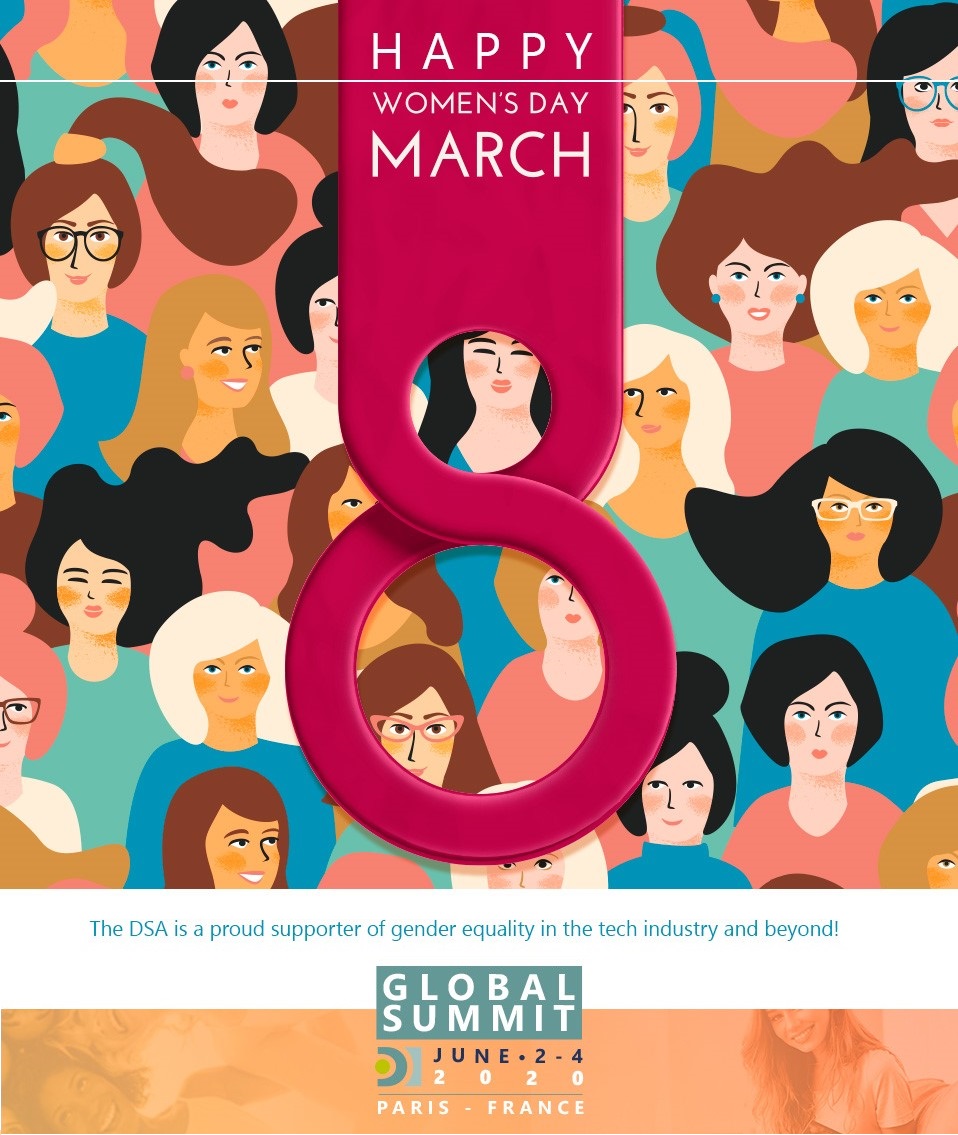A Key for Success in the Telecoms and Tech Industry
 Following my appointment as DSA President last year, we have reached many milestones towards fair and dynamic spectrum usage. As I continue my role into 2020 working towards even fairer dynamic spectrum usage across the world, it is also key to acknowledge the state of the industry with regards to fairer gender equality.
Following my appointment as DSA President last year, we have reached many milestones towards fair and dynamic spectrum usage. As I continue my role into 2020 working towards even fairer dynamic spectrum usage across the world, it is also key to acknowledge the state of the industry with regards to fairer gender equality.
Though my current role as President is proof that we have come far in the movement towards equality in the telecommunications field, there are still barriers in place. I am honoured to stand as the first female President of the DSA and I seek to encourage other women to join the technology industry, as I was encouraged by my own female mentors. However, it is worth noting that I am the first female President of the DSA; the fact we are still seeing ‘first time’ achievements for women shows that we have some way still to go before we are able to see women achieve on an equal scale.
Gender equality is an essential condition for an innovative, competitive and thriving economy, as stated in the EU Gender Equality Strategy, 2020 – 2025.
The presence of women in telecommunications is crucial: not only for the industry, where gender diverse teams are seen to achieve better business results 73% of the time, but also within society. Studies show that connectivity via telecommunications technology increases the quality of living in lesser developed countries in Africa. The internet allows people from around the world to communicate by reaching social circles, business opportunities, medical assistance and financial and government services. This, in turn, allows communities to live in more secure environments economically, medically and socially.
With women being 31% less likely than men to have access to the internet in lesser developed countries, poverty can impact the lives of women by cutting off or reducing their communication. Multiple factors contribute to this phenomenon including cultural roles, safety and finance. Not only do women suffer at the lack of connectivity they are able to access, but their communities and families are impacted as a result. The impact of a connected society – and connected women – is undeniable.
More needs to be done for gender equality in many ways, from giving more women executive roles in companies to providing women in rural communities with access to the internet. For these reasons, I feel a responsibility to not only reach these disconnected areas but to also use my platform and voice to advocate for gender equality worldwide. I believe the Dynamic Spectrum Alliance can, and will, accelerate the movement towards a more connected globe. As we come to the end of 2019, I look forward to a future that I am wholly committed to; one of progression, gender equality and worldwide connectivity.